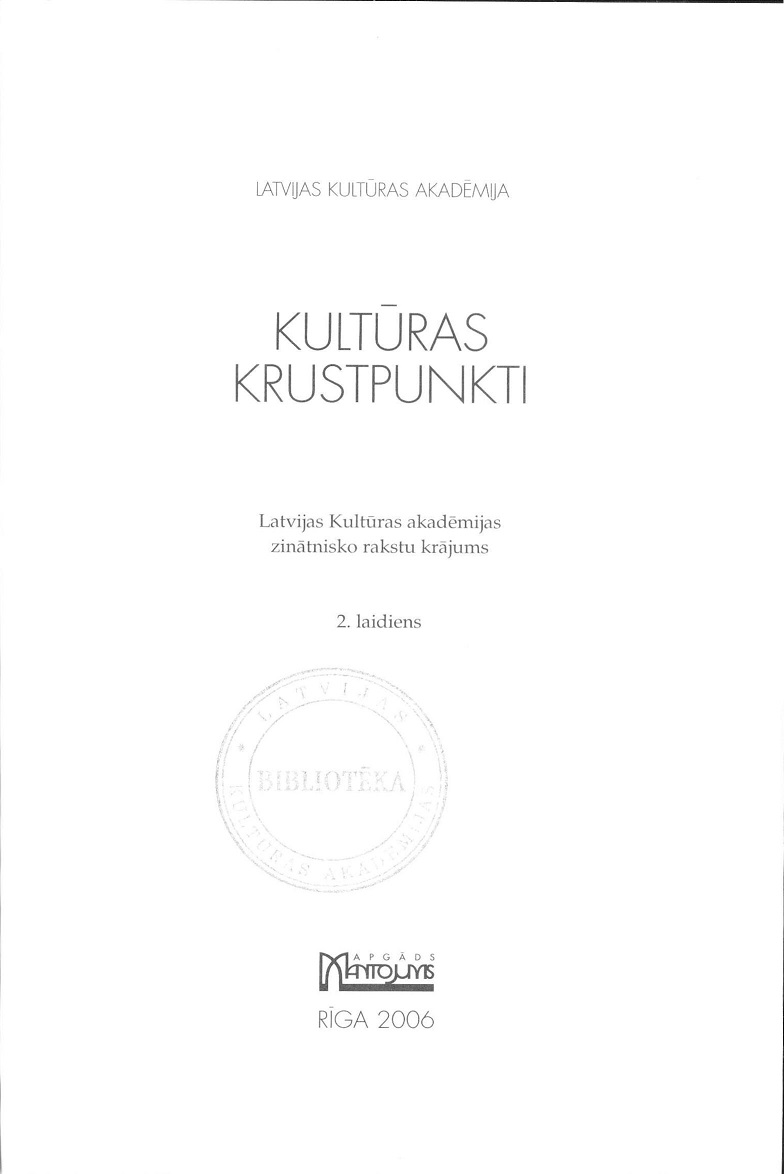Granātābola semantika O. Vailda pasaku krājuma "Granātābolu naminš" un P. Rozīša stāstu krājumā "Granātu ziedi"
The Semantics of Pomegranate in Oscar Wilde's Book of fairy-tales "A House of Pomegranates" and Pāvils Rozītis Collection of Short Stories "The Blossoms of Pomegranates"
Author(s): Ilze KačāneSubject(s): Cultural history, Short Story, Semantics, Comparative Study of Literature, Latvian Literature, British Literature
Published by: Latvijas Kultūras akadēmija
Keywords: Oscar Wilde; Pāvils Rozītis; fairy tales; short stories; semantics; pomegranate; culturological discourse; symbolism;
Summary/Abstract: In culturological discourse pomegranate contains extensive and diverse semantics. It can be interpreted as a symbol of fertility, resurrection, and rebirth, In Oscar Wilde's fairy-tales many such symbols are present. Among them the pomegranate is one of the semanthemes that repeats. This repetition is the significant component of the writer's poetics. O. Wilde and his creative works have influenced many Latvian writers. Pavils Rozitis gets acquainted with his works when translating his "Aesthetic Manifesto" in 1909 and the supplemental Wilde's fairy-tale "The Fisherman and His Soul" Pomegranate is one of the images in P. Rozltis's collection of short stories "The Blossoms of Pomegranates". The article is an attempt to clarify common and different pomegranate semantics in Wilde's and Rozitis's works.
Journal: Culture Crossroads
- Issue Year: 2/2006
- Issue No: 1
- Page Range: 102-111
- Page Count: 10
- Language: Latvian

